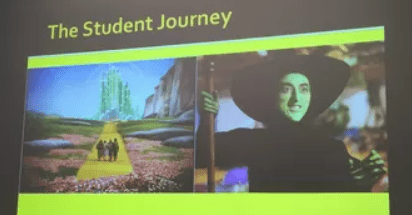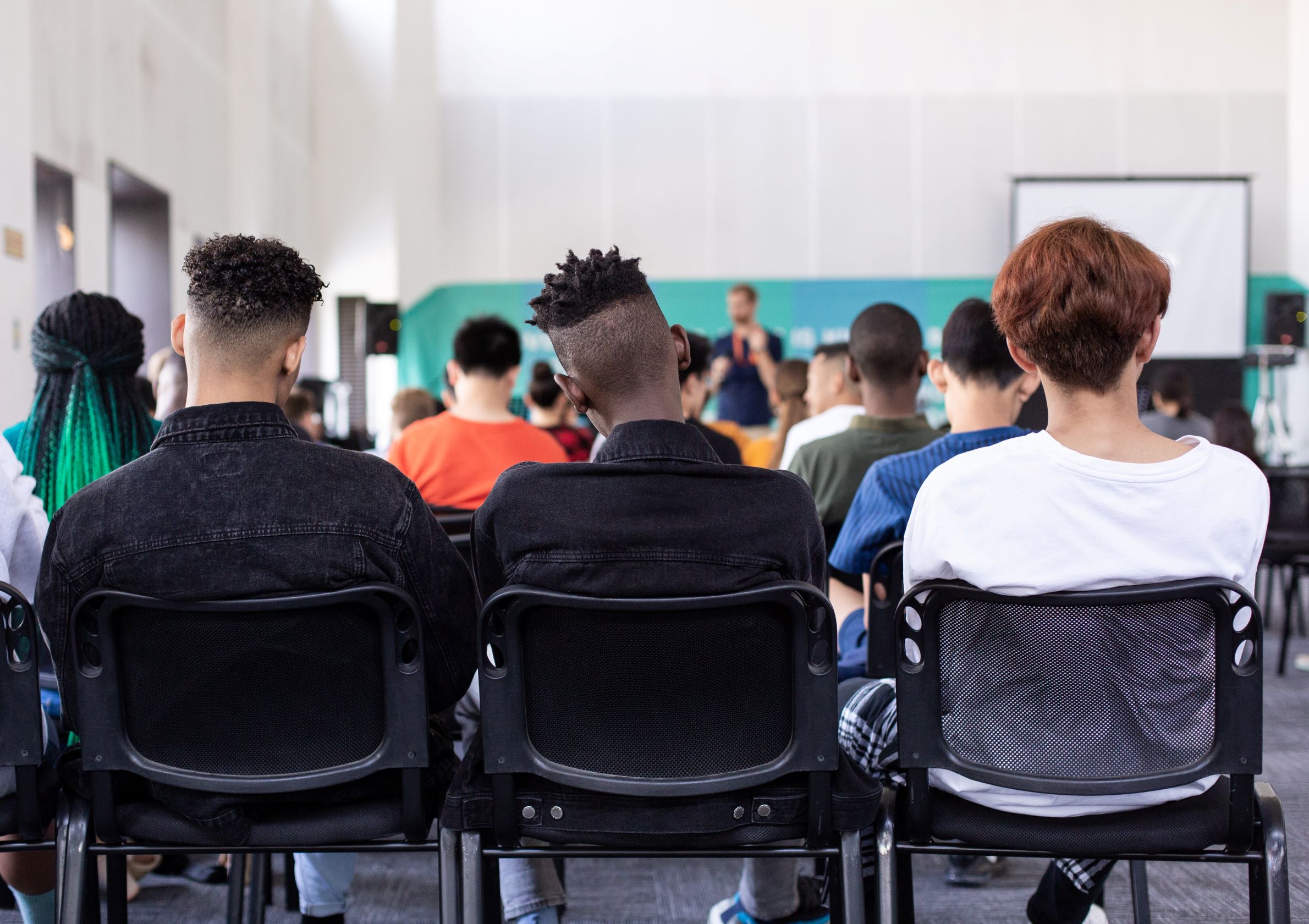Whilst the student voice continues to be a key institutional driver for change, are students able to exercise power to influence their own journeys within and beyond the classroom, asks Lee-Ann Sequeira.
A conversation with a colleague at a conference on radical pedagogies set the ball rolling. He remarked about the lack of outrage in our classrooms, and that outrage wasn’t necessarily being cultivated among our students. Part of that observation resonated with me – as educators, how are we cultivating critical engagement or discomfort with the status quo in our students?
Two-and-a-half years later, the situation has changed and there is more outrage on campus. From pushback against isolated instances of micro-aggressions, campaigns in universities are more about bringing about systemic change. From a focus on personal and socially sanctioned issues, there is a discernible move towards righteous indignation or social justice. But they seldom enter classrooms and even less so, the curricula, learning outcomes, and assessment. Must these powerful emotions and movements be relegated to a few fringe networks and communities and `renegade’ lecturers? It made me think about other emotions, experiences, and behaviours that appear to have fallen out of favour – silence, hazard, and resistance. How are these emotions and experiences being reflected in the curricula and institutional agendas? In this blog post, I examine these briefly in today’s HE landscape.
Silence
Silence is dismissed in today’s classrooms, in favour of active participation, which tends to be predominantly vocal. Silence in students tends to be equated with shyness, a lack of confidence, poor preparation, poor language skills, and most egregious, poor understanding. Quiet students are seen as a problem to be managed, needing to be coaxed out of their shells. This is the corollary of privileging oral participation in class and conflating it with evidence of learning. Anecdote, personal experience, and evidence show that an overemphasis on vocal contributions in the classroom does not necessarily aid deep learning, but teachers and instructors persist, due to the teaching and learning philosophies they subscribe to. It is not the importance of oral contributions in class which I am questioning (there is no doubt that it has an important place in the repertoire of multi-modal participation techniques); rather, it is the emphasis placed on it to the detriment of other forms of participation and contribution such as reflection, writing, etc. Consequently, other skills and behaviours associated with an engaged silence (such as contemplation, and listening skills) remain underdeveloped and undervalued.
Hazard
In today’s risk-averse society, a hazard is seen as something to be avoided at all costs and at best, carefully managed. This is not surprising, given how neoliberalism and performativity have eroded personal agency and autonomy. As a result, the current generation of students is receiving an education marked by safe choices and managed risk, rather than intellectual curiosity and experimentation. When universities attempt to chart out and ‘manage’ the student journey, they end up creating a bureaucratic labyrinth. The student, instead of negotiating challenges that make their journey meaningful and endow them with agency, grows adept at jumping through bureaucratic hoops, as theorised by Geoff Bunn and his colleagues: “the ‘student journey’ is perilous and not unidirectional. Such risks are necessary, in fact, because the ‘journey’ is about daring to make transitions that incur shifts in identity.”
As teachers, we need to empower our students to negotiate a changing world and culture, thereby enabling them to exercise their agency and achieve self-formation
On the other hand, in a highly competitive world, failure is not an option. Often part of the precariat, students today arguably do not have the luxury of seeing mistakes as life lessons: there is no ‘freedom to fail.’ But, in a society marked by political uncertainty, unpredictability, lack of job security, and diminishing living standards, taking the tried-and-tested option is the deceptively safe choice. As teachers, we need to empower our students to negotiate a changing world and culture, thereby enabling them to exercise their agency and achieve self-formation, a concept put forward by Simon Marginson. Immersed in the narrative of vulnerability and compassion, are we are shielding our students from these kinds of formative experiences? How can we enable our students to negotiate challenges and hazards not only in safe spaces, but also in authentic, real-world settings?
Resistance
It is interesting to see how, in a higher education system pervaded by a therapeutic ethos, where resilience and character-building are pathologised, where instrumentalism is encouraged and rewarded, there are pockets of resistance where students and staff are challenging the status quo. Campaigns such as Black Lives Matter, Rhodes Must Fall, and (the) Post-crash Economics Society, alongside exhortations from eminent educationalists such as Stephen Ball to eschew becoming a “handmaiden of the economy, but scourge and hinderer to the processes of economism” are instructive examples of how university campuses can provide university students with a fertile ground that engenders critical discussion and interrogation. For educators, lectures, and educational developers the challenge remains – how, through the curriculum and through teaching and learning, can we embed opportunities that enable our students to win back their agency and achieve self-formation?
 Follow the yellow brick road: student journey or student agency
Follow the yellow brick road: student journey or student agency
From Socrates to Friere, examples abound of how, as teachers, we can adopt a critical approach to higher education – through theory and canon, pedagogy and practice. Sometimes that may mean bucking mainstream notions of the `good student’ and `good practice’ or moving beyond popular trends that celebrate the personal and confessional, to emphasise principle and the structural. By arming our students thus, we can prepare them to confront uncomfortable truths and overturn commonly held beliefs, enabling them to chart an educational journey consistent with their personal values and beliefs, which may not always be a comfortable experience for us, educators.
Note: A version of this post first appeared as part of a collection on 23 February, 2018 in The Education Blog
___________________________________________________________________________________________________________________
This post is opinion-based and does not reflect the views of the London School of Economics and Political Science or any of its constituent departments and divisions.
___________________________________________________________________________________________________________________
Image credit: Taken from presentation by Geoff Bunn at the Radical Pedagogies: A Humanities Teaching Forum conference, 2018




